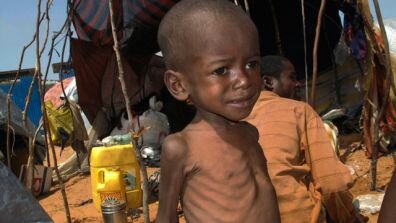Red Cross Plans $86M More in Aid for Somalia Associated Press
 GENEVA — The International Committee of the Red Cross announced plans Thursday to more than double its budget to feed starving Somalis, particularly thousands of children suffering from a confluence of drought, violence and internal politics.
GENEVA — The International Committee of the Red Cross announced plans Thursday to more than double its budget to feed starving Somalis, particularly thousands of children suffering from a confluence of drought, violence and internal politics.
The group says the malnutrition rate among children under the age of 5 is now above 20 percent — and climbing.
At an impromptu news conference, ICRC President Jakob Kellenberger appealed to donors for $86 million to help a further 1.1 million people in famine-affected parts of “ever more desperate” Somalia, which would bring its budget for Somalia to 120 million francs this year.
He said the Geneva-based ICRC recently completed delivery of food and medical aid for 162,000 people in central and southern Somalia, the first large-scale distribution in the region since the start of the year — and “by far the largest humanitarian operation” the group is now undertaking.
The United Nations has said tens of thousands of people have died in the drought, the worst in Somalia in 60 years, and 640,000 Somali children are acutely malnourished, a statistic that suggests the death toll of small children will rise.
Kellenberger said he had no independent figures on the death toll and did not want to comment on others’ statistics. When asked about U.S. estimates that the drought and famine in Somalia have killed more than 29,000 children under the age of 5, he told The Associated Press, “If that is correct, then it is extremely shocking.”
Nancy Lindborg, an assistant administrator of the U.S. Agency for International Development, provided the estimate to a congressional committee in Washington, based on surveys by the U.S. Centers for Disease Control and Prevention.
Kellenberger said the Red Cross is talking with “drought committees” set up by Al Qaeda-linked militants who control much of the country’s desperate regions, but said it hasn’t paid any money or made other concessions to the Al-Shabab Islamist insurgents.
Al-Shabab has denied a famine is taking place and won’t give access to the World Food Program, the world’s biggest provider of food aid. Kellenberger said his group’s two decades of experience in Somalia helped it gain cooperation.
Tens of thousands of refugees have been fleeing south-central Somalia to get food at camps in Ethiopia, Kenya and in Mogadishu, the Somali capital.
Comments
comments
 Calendar
Calendar






































